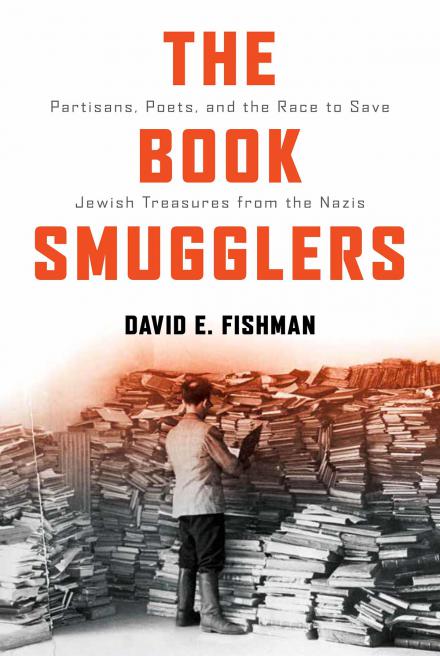The Book Smugglers: Partisans, Poets, and the Race to Save Jewish Treasures from the Nazis

|
David E. Fishman ForeEdge Purchase |
The Book Smugglers: Partisans, Poets, and the Race to Save Jewish Treasures from the Nazis tells the story of the courageous Jews of the “Paper Brigade,” who risked their lives to rescue thousands of rare books and manuscripts—first from the Nazis and then from the Soviets—by hiding them on their bodies, burying them in bunkers in the Vilna Ghetto, and smuggling them across borders. This book by David Fishman has been dubbed “Monuments Men for book lovers.” It is the epic chronicle of a little-known chapter from the darkest days of Jewish history.
The rescuers were pitted against Johannes Pohl, a Nazi “expert” on the Jews, who had been dispatched to Vilna by the Nazi looting agency, Einsatzstab Reichsleiter Rosenberg, to organize the seizure of the city’s great collections of Jewish books and other Jewish treasures, including YIVO’s archival collections and library. Pohl and his Einsatzstab staff planned to ship the most valuable materials to Germany and incinerate the rest. The Germans set up an organizational hub in the requisitioned YIVO building and used forty ghetto inmates as slave-laborers to sort, select, pack, and transport the materials, either to Germany or to nearby paper mills. This group, nicknamed “the Paper Brigade,” and informally led by poet Shmerke Kaczerginski, a garrulous, street-smart adventurer and master of deception, smuggled thousands of books and manuscripts past German guards. If caught, the men would have faced death by firing squad at Ponar, the mass-murder site outside of Vilna.
To store the rescued manuscripts, poet Abraham Sutzkever helped build an underground book-bunker sixty feet beneath the Vilna ghetto. Kaczerginski smuggled weapons as well, using the group’s worksite, the former building of the Yiddish Scientific Institute, to purchase arms for the ghetto’s secret partisan organization. All the while, both men wrote poetry that was recited and sung by the fast-dwindling population of ghetto inhabitants.
With the Soviet “liberation” of Vilna (now known as Vilnius), the Paper Brigade thought themselves and their precious cultural treasures saved—only to learn that their new masters were no more welcoming toward Jewish culture than the old, and the books then needed to be smuggled out of the USSR. Much of what they succeeded in smuggling out is now in the YIVO Archives and Library in New York. The work to rescue Jewish culture and heritage from oblivion continues to this very day with the Edward Blank YIVO Vilna Online Collections Project.




